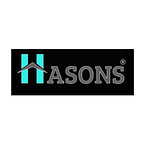The Sensor Era: Transforming Industries with Cutting-Edge Technology
Sensors are devices that detect events or changes in the physical environment and convert them into electrical signals that can be measured and analyzed. They have become indispensable across many industries and applications.
The key components of a sensor are the sensing element, transducer, signal conditioning electronics, and an interface that digitizes the signal. The sensing element reacts to the physical stimulus while the transducer converts this into a measurable electrical signal. The electrical signal is then conditioned, optimized, and digitized for processing.
Different types of sensors work on various principles. Temperature sensors like thermocouples and thermistors change their electrical properties in response to heat. Pressure sensors use piezoresistive, capacitive, or piezoelectric effects. Proximity sensors use inductance, capacitance or ultrasonics to measure position and distance. Flow sensors calculate flow rates using pressure differentials, turbine rotations, or ultrasonic Doppler shifts. Gas and chemical sensors use interactions with specific compounds to detect their presence. Biosensors use electrochemical, optical or other techniques to detect biological molecules.
Sensors play vital roles in many fields. In automotive systems, they enable fuel efficiency, safety, navigation and diagnostics. Consumer electronics use CMOS image sensors, accelerometers, gyroscopes, touch sensors and others to power cameras, motion detection, gesture control and more. In industrial automation, sensors provide critical monitoring and control capabilities for parameters like flow, pressure, temperature, level, gas concentration, etc. In infrastructure, occupancy sensors optimize lighting usage while structural health sensors monitor bridge and building health. Environmental sensors measure air quality, pollution, noise and more.
Sensor technology provides many benefits to society. It enables automation and advanced capabilities in systems like vehicles, machinery, consumer devices and smart buildings. The data generated provides valuable insights that drive improved performance, safety and efficiencies. Sensors also mimic human senses, allowing enhanced imaging, exploration of extreme environments, medical testing and diagnostics, and research platforms. Consumer benefits include convenience, personalization, health tracking and entertainment. Environmental monitoring with sensor networks will be crucial for resource management and urban planning.
Continued innovation in microelectromechanical systems (MEMS) technology has enabled smaller, cheaper, more reliable sensors to be mass-produced. This has fueled exponential growth in sensor applications and the Internet of Things (IoT) revolution. Emerging trends include embedding AI in sensors for smarter functionality. Extensive sensor networks with wireless communication will enhance urban infrastructure management and indoor conditions.
Highly sensitive imaging sensors continue to enhance medical diagnosis and autonomous navigation. Wearable sensors and electronic skin hold promises for consumer health monitoring and human-machine interfacing. Implantable sensors could provide continuous monitoring of medical conditions. Lab-on-a-chip biosensors can enable rapid point-of-care diagnostics.
In summary, sensor technology continues to be a highly dynamic and evolving field impacting nearly every industry in transformative ways. From good old thermometers to sophisticated AI-powered imaging systems, sensors provide us valuable insights into our lives and surroundings. The sensor revolution will continue enriching our capabilities and societies in the 21st century through smarter systems, connected infrastructure, improved healthcare, advanced scientific research and much more.
